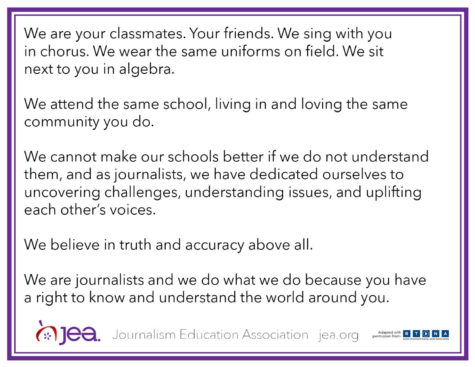Is Your Life Lost in Translation?

February 23, 2017
“If you see yourself doing work internationally or going into banking or trade or any other business where you’ll travel, you’ll take Spanish more seriously,” says Tom Birmingham, Korn/Ferry’s managing director of global accounts.
Many careers require a variety of skills; however, is Spanish one of them? A foreign language can provide an advantage in the job market. In fact, as Congress reexamines the No Child Left Behind Act (or the Elementary and Secondary Education Act), language enthusiasts hope that it will pass the $400-million proposed funding for teaching world languages to K-12 students. In hopes that this funding will help the younger generation have a step ahead in the job industry, simply by being bilingual.
Most Americans don’t learn a second language because the country itself is a global economic hegemon. English is by far the most studied language in the world with 335 billion speakers. Therefore, Americans think they are privileged and expect that everyone else should learn their primary language (English), rather than going out of their way to learn other languages. America lags behind its developed counterparts in multilingualism rates, with 56% of Europeans and 35% of Canadians speaking different languages, compared to America’s 25%.
Americans are often quick to judge the value of learning a second language. The rise in bilingualism portrays a cultural shift for Americans. Spanish dominates all other foreign languages in the U.S.’s public schools, and enrollment has nearly doubled over the past two decades with 3.3 million high school students. Those that entered the workplace in 2014 with second language fluency had an additional 10-15% additional pay increase. Research done in the U.S. shows there is an indicated $3,000 average salary augmentation for people who speak more than one language.
Bob Holloway, McCoy’s restaurant manager and owner has been in the culinary industry for 40 years, and explains how important Spanish is. “Spanish is absolutely in high demand; it’s imperative. It’s necessary to know Spanish to be a good manager, and it’s helpful if you’re an employee.” Holloway explains that the entire back of his house is Hispanic.
“It’s easier getting a job knowing Spanish and or a second language. Even my servers in the front of the house can use it as a tool because then they can communicate with Spanish people when they come in.
It does benefit one to take Spanish in high school, rather than taking it later in life. And as long as you’re in school it gives you an opportunity to be around your peers and have someone to practice with.” Learning a second language early on gives you an advantage above other employees, and can make the hiring process easier.
“If I had a choice in hiring a two cooks, and if they’re both at the same skill level, the person who speaks Spanish will get hired above the person who doesn’t. And in my world, quite honestly, if you can’t speak Spanish, you can’t work in my kitchen.”
While speaking Spanish can have benefits in the kitchen, its advantages can also translate into daily life. Pam Roberts, a Spanish teacher, said, “Learning Spanish is beneficial for one’s future. Along with learning Spanish, you learn English better. Spanish can get you practically any job, and it’s a very effective communicator. It’s super beneficial, in practical matters, and in a global way.
There’s no question, knowing Spanish helps you get a job. In the world we live in now to know Spanish it’s huge.” When asked about furthering one’s education in Spanish, Roberts said, “It will certainly help your Spanish, but it really opens your eyes to what part of the world is like.
I would say that one of the main reasons to take Spanish in high school is so you’re ready to have an abroad experience in college, because some colleges require a year or a semester abroad.”
When asked if schools should have studying a second language be mandatory, Roberts replied with, “Yes, I think so. Maybe not level two, but at least one year. I would say in Spanish two there’s quite a mix of students who really want to learn Spanish, and a mix of kids who’re just there for the graduation requirement and aren’t putting any effort into it at all. I would say in level three, that situation is significantly less, but there’s those kids who think it’s a good thing for college [Level 3], but they’re not putting effort into it, which causes them to get a bad grade which colleges don’t really look at.”
“When you gain another language, you gain another soul” -Pam Roberts”
Employment for interpreters and translators is expected to grow 29% from 2014 to 2024; much faster than the average for all other occupations. In the world we live in today, it’s intuitive that one learns a second language – as it can advance one’s future and better the experiences that can come along the way.







